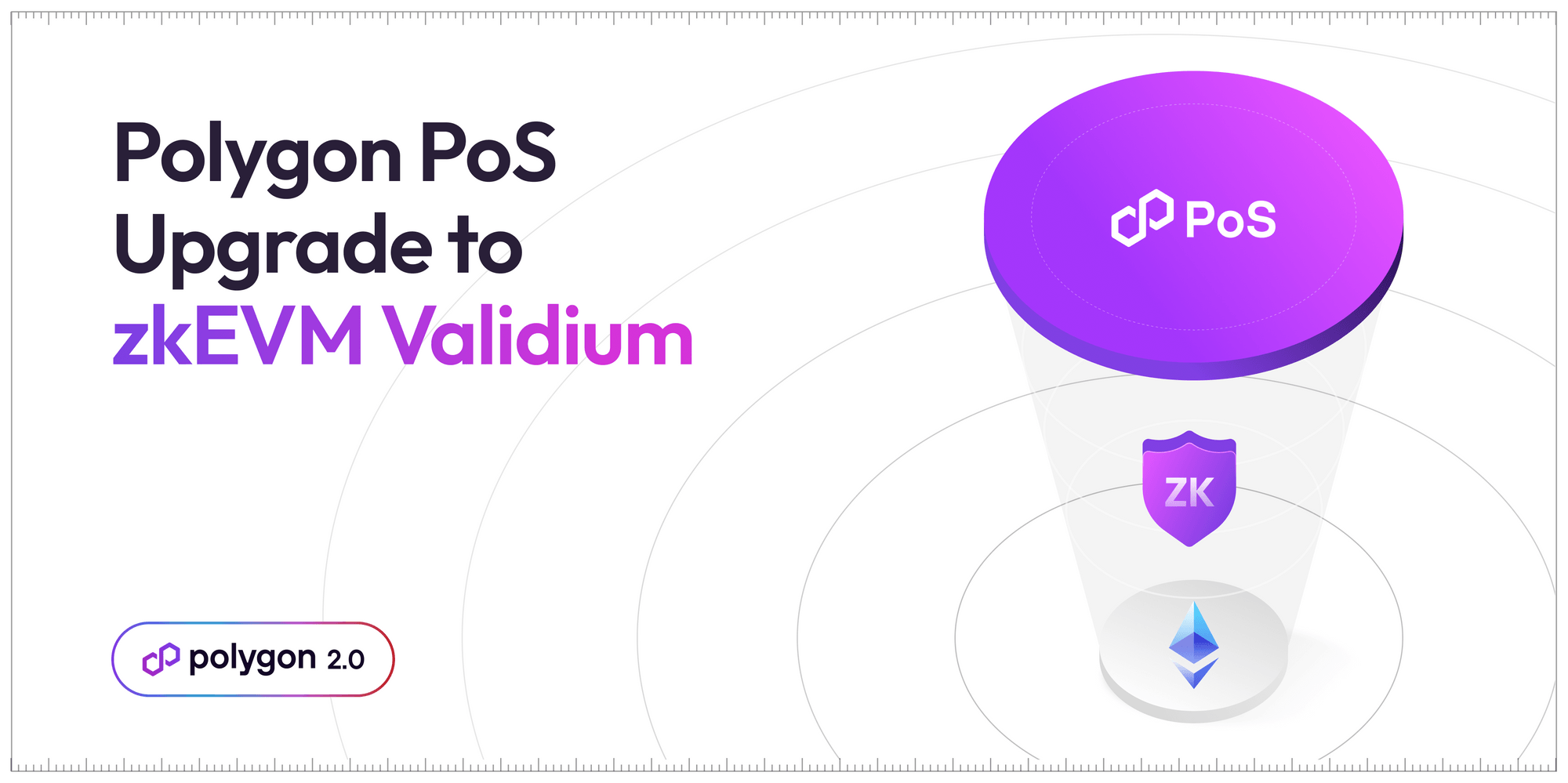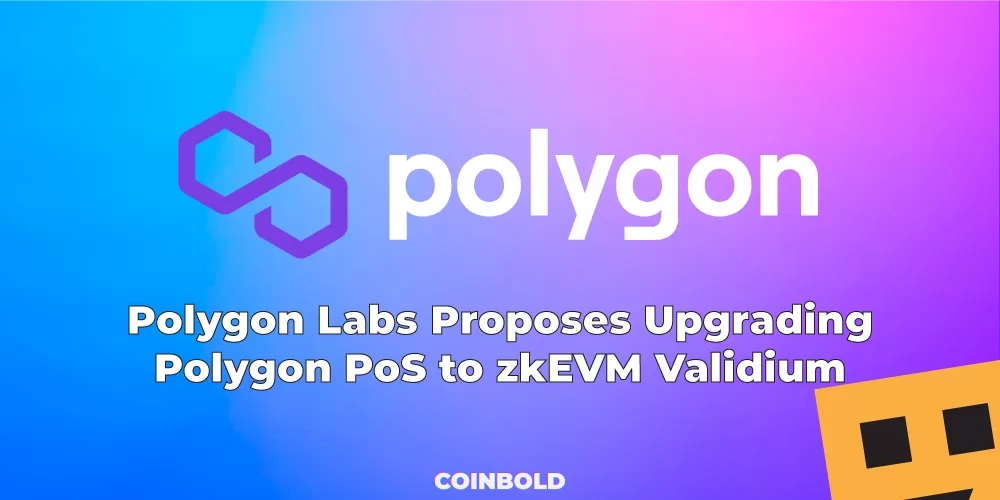Polygon Labs has recently proposed an upgrade to its Proof of Stake (PoS) system. The upgrade would involve implementing a zkEVM validium, which is a decentralized ZK Layer 2 solution. This upgrade aims to combine the security of Ethereum with the scalability and low fees that Polygon is known for. It sets the stage for the upcoming Polygon 2.0.

This proposed upgrade showcases Polygon’s commitment to technological leadership and aims to bring significant benefits to its users and developers. If accepted, the upgrade would enable a smooth migration of Polygon PoS, including its $2 billion in assets, millions of users, and thousands of applications, to this innovative technology.
As a zkEVM validium, Polygon PoS would offer two key advantages over rollups. Firstly, it would have significantly lower fees as it wouldn’t require expensive Ethereum gas. Secondly, it would have much higher scalability. The only additional cost to run Polygon PoS in this new form would be the cost of generating proofs, which Polygon Labs has already reduced considerably.
Importantly, this upgrade will not impact the experience of Polygon PoS network users or developers. Validators would only need to update to the latest version of the Polygon PoS client software, and the chain economics would remain the same. The staked token, $MATIC, would stay unchanged.
After the upgrade, existing Polygon PoS validators would continue to play important roles in ensuring data availability and sequencing transactions. This would make Polygon PoS the first Layer 2 solution with a decentralized sequencer set.
This proposed upgrade aligns with the vision for Polygon 2.0, which aims to establish Polygon as the Value Layer of the Internet. This vision includes enabling anyone to create, exchange, and program value in the same way the Internet allows for the creation and exchange of information.
If the proposal gains significant support from the community, a formal Polygon Improvement Proposal (PIP) will be initiated, following the prescribed PIP-1 and PIP-8 processes. After discussion and consensus gathering from all relevant ecosystem participants, the upgrade could potentially be implemented on the mainnet by the end of Q1 2024.
This proposed upgrade is an invitation to everyone to engage in the discussion and leverage the power of ZK. It represents a step towards unifying all Polygon chains to form Polygon 2.0, the Value Layer of the Internet.
Compiled by Coinbold

